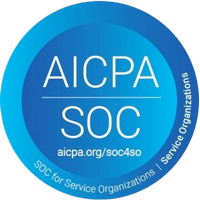In senior living, onboarding and engagement for new employees can involve a lot of moving parts. Depending on what state or states your communities are in, you likely have demanding training requirements for your new and existing staff. In addition to juggling certifications, licenses, and mandatory training, you also need to train new staff for the specificities of your community.
During onboarding, you’ll also need to clarify the chain of command, review the logistical nuts and bolts of individual jobs, and introduce new staff to your unique community culture. And if that wasn’t enough, your onboarding needs to be adaptable for different roles, move quickly without sacrificing quality, and above all, lead to excellent quality of care.
Phew. But there’s good news: despite all its dynamic pieces, onboarding doesn’t have to be overwhelming. In fact, it’s a unique opportunity to improve engagement and get your employees started on the right foot. There are concrete steps you can take to bring your employee onboarding to the next level. Read on to learn how you can increase engagement throughout the onboarding process.
Onboarding and Engagement for Assisted Living: Six Tips
1. Decide on Your Goals
Your goal is to get everyone trained for their job. But onboarding is also a great way to connect your new hires to the missions and values of your community. Ask yourself: at the end of the training process, how do you want them to think of themselves and their new role?
Ideally, onboarding should be a way to expand upon the values you’ve already established during the hiring process. If you have trouble introducing these values to candidates and new hires, you might want to conduct a hiring audit. An audit can help you understand the pain points in your current process, but it can also help you create a more seamless transition between hiring, onboarding, and training.
2. Tailor Onboarding to Individual Communities
You know what makes your senior living community special, but new hires might not yet. Onboarding is a great opportunity both to introduce your hires to what you love about their new workplace and to answer questions specific to their roles. If you manage multiple communities, tailor your onboarding for each individual facility, with help from managers at those buildings.
Tailored onboarding can include taking time to answer important building-specific questions. How do you schedule shifts? Does your HR team have office hours? How do you want your staff to interact with patients? Modules or sessions dedicated to culture and community values are also a great way to personalize your onboarding process. As an added bonus, these sessions can help break up the more logistics-oriented parts of training, and keep your new staff engaged.
3. Prioritize Speed (But Don’t Sacrifice Quality)
With such a long time-to-fill in healthcare, you’re likely eager to get your new employees started (and alleviate the burden on current staff). The onboarding process is more time that new hires aren’t performing their duties. However, good onboarding can’t be rushed, and preserving quality of care is extremely important.
So, how can you save time and move through training quickly? Make sure you’re using a strong applicant tracking system that can keep all your employee credentials and documents in one place. When you can move quickly through the administrative parts of onboarding, you can focus on providing culturally-specific training aimed at quality patient care.
4. Train Soft Skills
In 2016, a study found that most health professional students and healthcare leaders believed these were the most vital skills for success in a healthcare workplace: empathy, flexibility, teamwork, meaningful communication, and time management. These soft skills make communities thrive, and onboarding is a great time to reaffirm their importance to your staff.
Some of your hires may be new to healthcare, or used to environments where it’s uncommon to form long-term connections with residents. Take time during onboarding to train on active listening, treating residents with dignity, respecting autonomy and privacy, and other soft skills that align with your values. Remember that all employees will have different skill sets. Play to people’s strengths and weaknesses to create your ideal teams.
5. Conduct Surveys to Help You Improve
Worried you’re losing engagement during the onboarding process? The easiest way to find out if your onboarding and engagement strategies are effective is to ask. Send your new hires a post-onboarding survey to help you understand if your onboarding is meeting your goals. Also, consider a follow-up survey three to six months in the future.
6. Use Onboarding as the Springboard to Further Training
Onboarding can be a great entry point to continuing training and education. Consider in-house training to continue boosting engagement long after onboarding is over. Or, less formally, try offering seminars that go deeper into topics such as community culture, soft skills, and organizational mission.
If you do offer opportunities for continuing education, make sure new hires are aware of them before the onboarding process is finished. Training and seminars are also a great way to move employees towards their ideal careers, and supporting career growth can help you stand above the competition in the job market.
Better Hiring With Apploi
No matter how many healthcare roles you’re hiring for, you’ll be able to easily manage records, credentials, and licenses with Apploi. With these administrative tasks out of the way, you can focus on the larger questions of improving your onboarding and engagement at your senior living community.
Interested in learning more about how you can recruit, hire, and onboard healthcare staff quickly? Contact us today for a free demo of our software solution.





